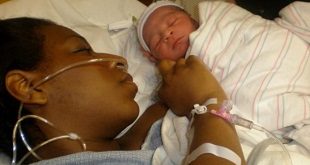So when a reformer like Kagame attacks their privileges, the thieves hide behind the language of rights to defend their interests – the right to free speech, the right to property and the right to due process. They mobilise human rights groups and the media. Given deeply entrenched prejudices about African leaders – themselves generated by our history – international media and human rights groups mistake thieves to be democrats. So they join the forces of resistance. The reformer realises that the platforms for democracy are not defending the interests of ordinary people but the theft and privileges of a few elites.
Here is the challenge reformers like Kagame face: those who suffer from his anti corruption drive are few but rich, educated and powerful with access to media. So they have a voice. Those who benefit from his anti corruption drive are the least educated and poorest sections of the society. They do not speak on CNN and BBC. They do not have access to Human Rights Watch or Amnesty International. So they have no voice. Sadly, in Africa those with voice are less than 10 percent of the population. The rest are ordinary rural masses who cannot defend their interests using our inherited democratic platforms.

It is this reality that has forced some of the most promising democracies in Africa – Kenya, Malawi, Zambia, Ghana, Mali and Senegal to shy away from confronting the beast of personalised patronage. Instead they have become hostage to a few powerful individuals and groups. In western nations, largely because the median voter is well educated, middle class and has voice in the mass media, corruption is fought through the democratic process. In Africa, because the median voter is semi literate, poor with no voice in the media; and because his/her own traditional values do not treat patronage as abuse of office, the democratic process tends to incubate and reproduce corruption.
In Africa, the elite want power and privilege and they use the press, civil society organisations, political parties, etc. to advance their interests. They even mobilise the masses based on shared identity (religious or ethnic) behind them. Uganda presents the most vivid cases of this perversion of democracy. Except for a few exceptions like Kizza Besigye, all the articulate critics of Yoweri Museveni have over the years joined him in his government – Basoga Nsandu, Tamale Mirundi, Omara Atubo, Aggrey Awori, Nasser Sebaggala, – I can list 1,000 of them off my head.
Museveni has been smart (or opportunistic) enough to learn that rather than fight these powerful elites, he does better by co-opting them. He has thus turned critics into allies. Kagame’s major failure (and equally his biggest achievement) has been to resist these particularistic demands for power and privileges. By doing little to placate the interests of the powerful, he has turned real and potential allies into bitter enemies – hence the virulence of their criticism of him. Most African leaders adopt Museveni’s strategy; it is cheaper and efficient but ordinary people gain little from it. Kagame has gone for the costly route; it has delivered for ordinary people but attracted the hostility of the powerful.
The lesson is simple but powerful: elites in Africa use the democratic process – not to promote the interests of the ordinary person – but to acquire positions of power and privilege. Thus, in spite of its apparent freedoms of speech and press, its vibrant political parties and civic organisations, ordinary Ugandans have gained little in form of public goods and services. Every year 80,000 children of ordinary people die of preventable diseases; in ten years you have a massacre equal to the genocide in Rwanda. Today, 2.3m children are malnourished in Uganda and 16 mothers die in child birth every day.
The above figures are mere anecdotes in our mass media. Yet human rights groups, media and all other democratic platforms of the world will be concerned about one corrupt official running away to exile before he is arrested – because he was a General in the army, a minister in cabinet, etc. Our so-called democratic platforms are so concerned about the privileges of a few powerful elites and so blind to the gross abuses against the vast majority of our people that I wonder whether Africa is thinking at all.
Any leader in Africa who seeks to fight corruption as relentlessly as Kagame is doing, and to deliver public goods and services to ordinary people as Kagame is doing will come face to face with this contradiction: that resistance to his reforms will be built and defended through the very democratic structures we cherish. As I have observed the failure of democratic governments across Africa, I realised that ordinary people actually have limited voice through the press, civic associations and political parties.
To change politics from a contest over the privileges of a few to be a contest over service to the citizen, a genuine reformer will find it almost inevitable – or even necessary – to put restraints on many conventional platforms of democracy. But this also demands that he/she mobilises ordinary people to be active participants in the political process, integrate them in decision making and empower them to manage their own affairs. Rwanda has achieved this, not through political parties and mass media but largely through local councils.
The results show. In the 2010 Gallup Poll, 95 percent of Rwandans said they had confidence in their government; 86 percent said their electoral process is fair and honest; 98 percent have confidence in their military; 84 percent in their judiciary as being independent; 77 percent were satisfied with their freedom of expression, belief, association, and personal autonomy. In all these, Rwanda ranks among the top ten democracies in the world alongside Norway, Sweden, Denmark, Finland, Austria, New Zeeland and Australia. This cannot be on account of repression for the same distortion would have placed Saudi Arabia, North Korea, Zimbabwe and Burma in the top league.
Yet human rights groups and sections of the media call Rwanda a police state. Is repression an objective standard or a subjective feeling? How come human rights groups claim Rwandans are enslaved when Rwandans feel free? It is because freedom has been stripped of context. The result is that Africa has spent decades obsessing about procedures of democracy instead of its substance. By trying to look at democracy indicators based on western societies – mass media, political parties etc – we have ignored the fact that most Africans (80 percent) are not represented in these platforms.
We have a clear incongruence between abstract notions (the index of Freedom House) and the feelings of ordinary Rwandans. Karl Marx encountered this dilemma 160 years ago. In his Labour Theory of Value, he argued that capitalists exploit workers by making them work more hours (Surplus Labour Time) than was needed to produce their own wages (Necessary Labour Time). When workers did not feel exploited, Marx propounded a new theory of “false consciousness”; that they are unaware of their “actual” situation. He then called for a vanguard party to unmask the “social myths” and “religious doctrines” that prevent people from seeing things as they are.
This tendency to think people are ignorant ignores the real possibility that they may have a different basis of judging their reality based on their experience. Most of us who travel by air and have to go through rigorous security checks do not accuse our airports of being Stalinist. We know the context that has demanded we be checked up to our underwear. Human rights groups and sections of the media should not usurp the sovereignty of the people of Rwanda and claim to speak on their behalf. Let Rwandans speak for themselves – which they are already doing through regular elections and opinion polls by some of the world’s most respected polling agencies.
amwenda@independent.co.ug
 The Independent Uganda: You get the Truth we Pay the Price
The Independent Uganda: You get the Truth we Pay the Price



